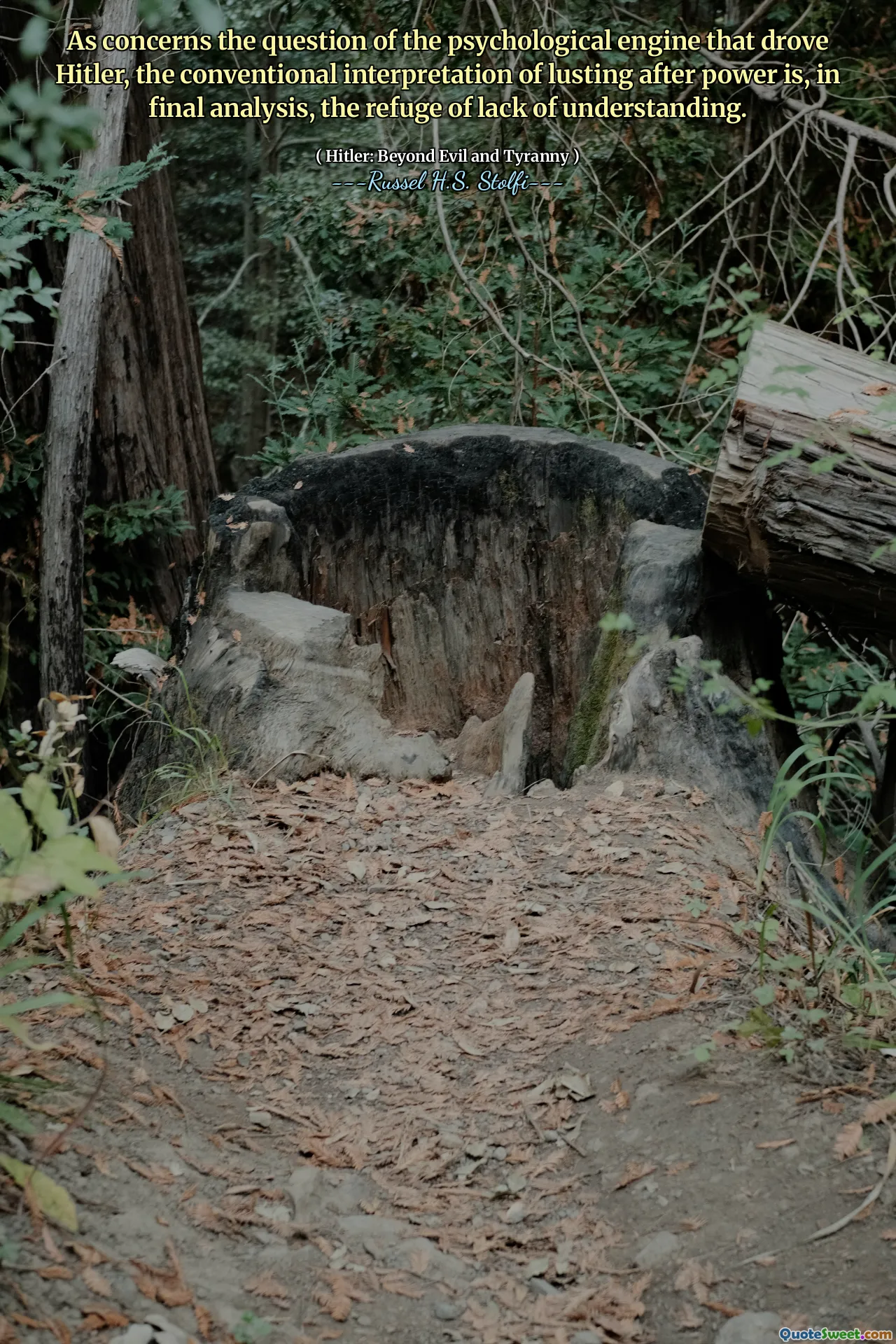
As concerns the question of the psychological engine that drove Hitler, the conventional interpretation of lusting after power is, in final analysis, the refuge of lack of understanding.
This quote prompts a profound reflection on the nature of psychological motivation, particularly in one of history's most infamous figures, Adolf Hitler. It suggests that attributing Hitler's actions solely to a lust for power might be an oversimplification, serving perhaps as a somber fallback for those unable or unwilling to delve deeper into the complex human psyche that underpins such extremities. Power, in many ways, is a visible manifestation of underlying fears, insecurities, and unmet emotional needs. The phrase hints that a superficial analysis—seeing Hitler as merely power-hungry—may stem from a lack of true understanding of human psychological drivers. This resonates with the broader notion that such destructive behaviors often mask deeper psychological traumas, underlying ideologies, or subconscious drives that warrant exploration. When we reduce such a figure to a simple desire for power, we risk neglecting the intricate interplay of personal history, societal influences, and mental health factors that culminate in such profound actions. Recognizing this complexity does not excuse or justify the atrocities committed, but it encourages a more compassionate and nuanced approach to human nature and its capacity for darkness. It underscores the importance of psychological insight and empathy in understanding human behavior, especially concerning figures who have caused immense suffering. Ultimately, the quote challenges us to move beyond simplistic explanations and seek a richer, more comprehensive understanding of the psychological forces that shape human actions, both benign and sinister.






